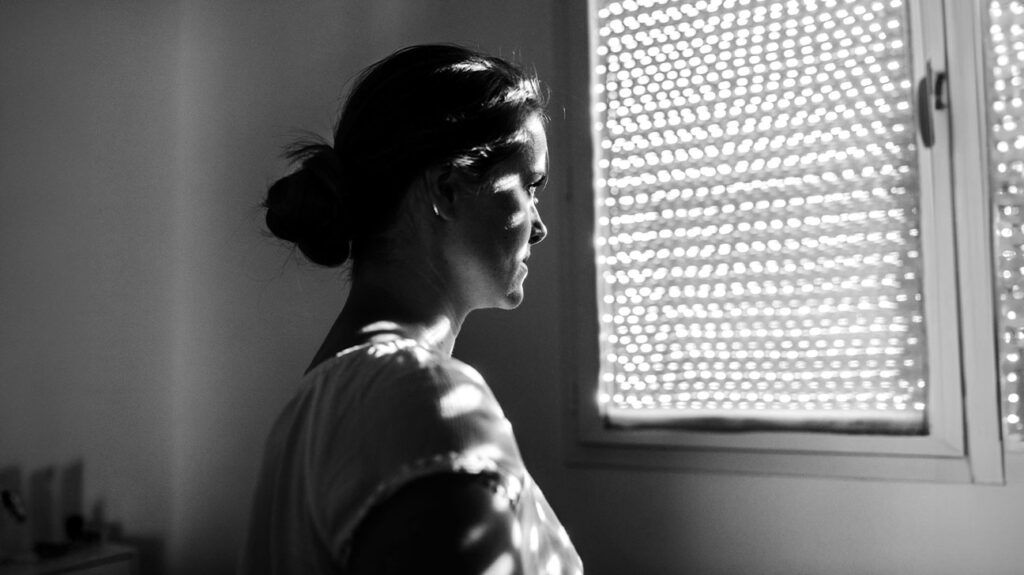Decompensation in schizophrenia refers to a period when the person’s mental state becomes unbalanced and symptoms return.
Schizophrenia is a serious psychiatric disorder characterized by disturbances in perception, behavior, and thought. It typically involves hallucinations and delusions. Current treatments and therapies can help a person with schizophrenia maintain a balance in their mental health.
However, a person living with schizophrenia may experience times when they become psychologically unbalanced. This is known as decompensation. It is a state when symptoms return, often due to a preceding event or trigger, issues with medication, or other factors.
Keep reading to learn more about decompensation in schizophrenia, signs of decompensation, treatment options, and more.

Decompensation is a general medical term that doctors use to describe situations where a physical, psychological, or other type of condition becomes unstable, leading to new or worsening symptoms.
According to a
It may occur due to a stressor or preceding traumatic event that causes an imbalance in the person’s mental health status due to failure of their in-place coping mechanisms to handle the new stressor.
Decompensation may also occur due to changes in medication, poor treatment adherence, or progression of schizophrenia. Experts
Episodes of decompensation represent one of four criteria that the Social Security Administration (SSA) uses to help determine eligibility for Social Security Disability Insurance for individuals with mental health illnesses.
The SSA identifies possible causes as insufficient medication, the presence of stressors, or a combination of both. It recognizes that episodes of decompensation create issues that negatively affect several areas of a person’s overall well-being, including their ability to participate in daily life and social situations.
According to an older
- caregiver criticism
- nonadherence with medication
- persistent substance use
- poor premorbid adjustment
Premorbid adjustment is the ability of a person to make social and intimate relationships, and academic achievements before the onset of psychotic symptoms.
Decompensation in schizophrenia can present in different ways.
According to older
Early signs may include:
- increased anxiety
- changes in mood
- sleep disorders or disturbances
- food disorders
- suicidal ideation
Suicide prevention
If you know someone at immediate risk of self-harm, suicide, or hurting another person:
- Ask the tough question: “Are you considering suicide?”
- Listen to the person without judgment.
- Call 911 or the local emergency number, or text TALK to 741741 to communicate with a trained crisis counselor.
- Stay with the person until professional help arrives.
- Try to remove any weapons, medications, or other potentially harmful objects if it’s safe to do so.
If you or someone you know is having thoughts of suicide, a prevention hotline can help. The 988 Suicide and Crisis Lifeline is available 24 hours a day at 988. During a crisis, people who are hard of hearing can use their preferred relay service or dial 711 then 988.
Symptoms and signs of psychosis
- paranoid ideas, uneasiness with others, or suspiciousness
- difficulty with logical, clear thinking
- sudden drop in job performance or grades
- decline in self-care or personal hygiene
- withdrawing socially and spending a lot more time alone
- unusual or overly intense ideas, strange feelings, or a lack of feelings
- trouble telling reality from fantasy
- confused speech or trouble communicating
- disruption of sleep, which may include trouble falling asleep and reduced sleep time
Along with these symptoms, a person may also experience:
- anxiety
- emotional disruption or distress
- loss of motivation
- trouble with overall functioning in daily activities
An earlier
Decompensation in schizophrenia and relapses require quick identification and treatment to help improve outcomes.
In most cases, people experiencing decompensation in schizophrenia do well with the reintroduction of medication. Antipsychotics
Psychological therapies, such as family counseling and cognitive behavioral therapy (CBT), can also help with reducing the symptoms of decompensation in schizophrenia.
Caregivers and people living with schizophrenia will likely benefit from taking steps to prevent relapses and a return of symptoms. According to a
- CBT
- family interventions, such as therapy
- family psychoeducation
Continuing medication also plays an important role in preventing the symptoms of schizophrenia from returning.
The following provides some answers to frequently asked questions about schizophrenia.
What is the last stage of schizophrenia?
The last stage of schizophrenia is the third stage, known as the residual phase. A person at this stage does not present with positive symptoms — such as delusions — and symptoms tend to be less severe than in the active stage.
It generally has an association with negative symptoms, such as low energy or depressed mood. However, it is important to note that the
What is the life expectancy of a person with schizophrenia?
Evidence suggests that schizophrenia can reduce a person’s lifespan by about
Decompensation in schizophrenia is an acute worsening of symptoms associated with the condition. It generally requires treatment with medication and psychotherapy to help a person reduce their symptoms.
A person can help prevent a relapse of symptoms through adherence to medications, family or caregiver counseling and education, and CBT.

